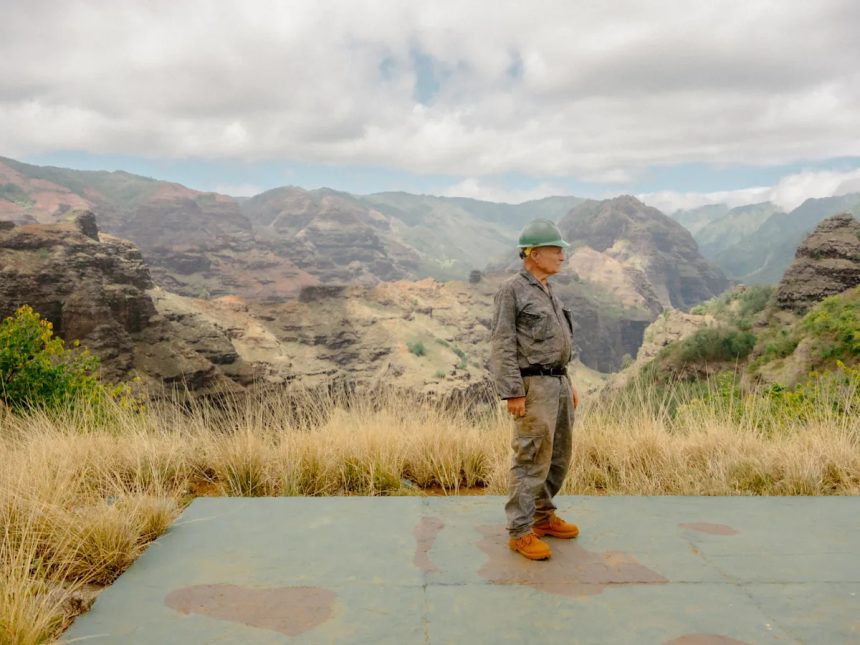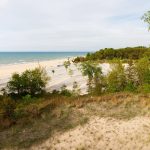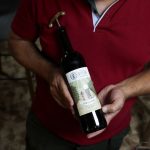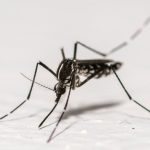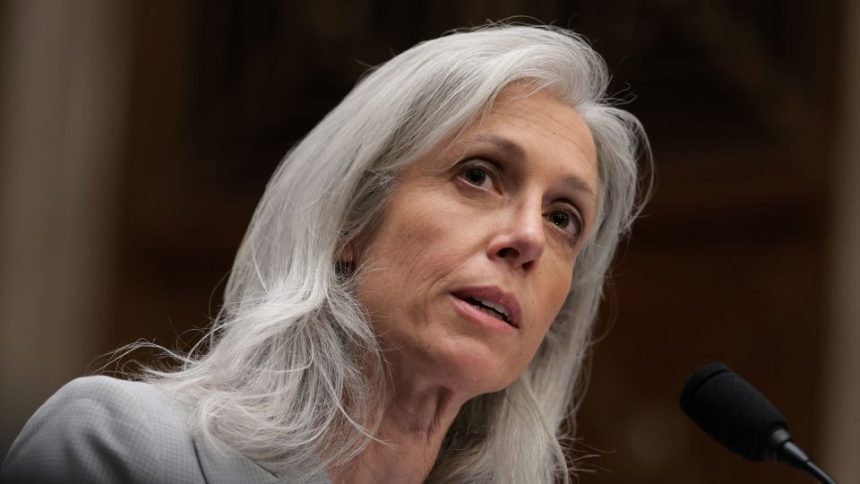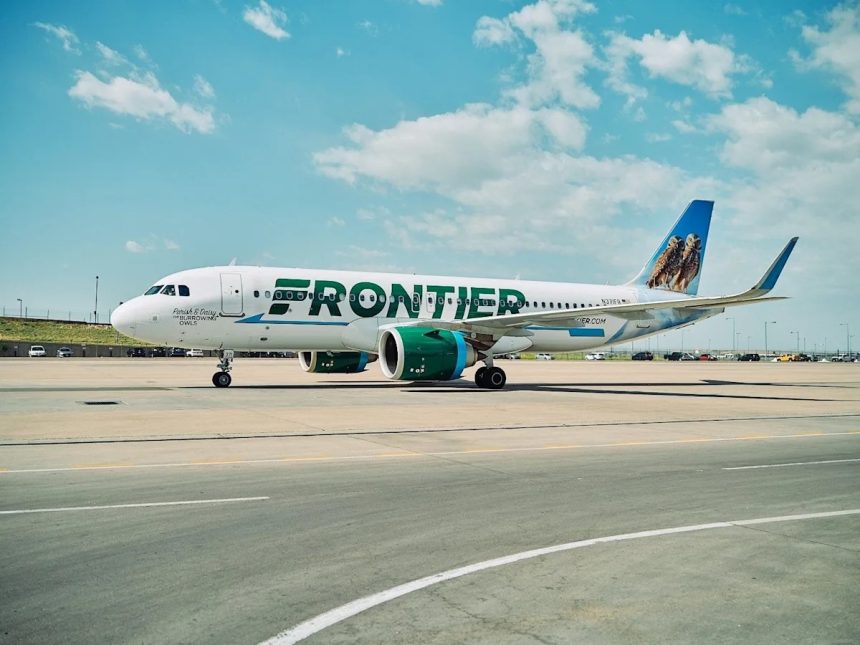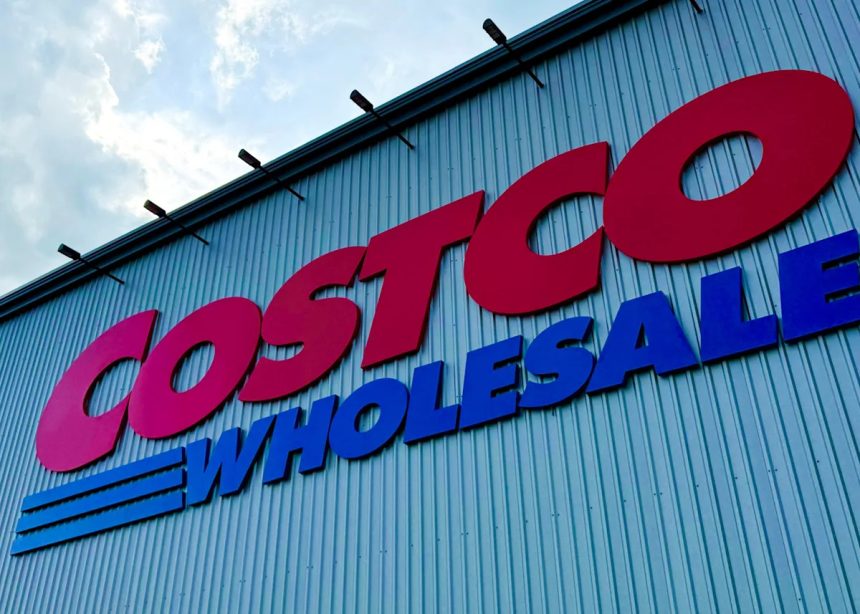Walking through the dusty town of Waimea on the west side of the Hawaiian Island of Kauai, you might notice an older man in a green hard hat, eating a block of American cheese at a table outside of a Subway.
His boots are caked in red clay from the mountains, where he’s spent most of the day working. If you strike up a conversation with him, he might mention his various battles with government environmentalists — whom he calls “eco-Nazis” or the “green Gestapo” — and their efforts to seize his private island. Or he might tell you about America’s social decay, and our need to return to strict Calvinist morals.
You probably wouldn’t clock that this 83-year-old man is among the largest and most influential landowners in Hawaii.
Keith Robinson, along with his younger brother, Bruce, and their family plantation Gay and Robinson, own 55,000 acres of Kauai and, 17 miles west, the entire 45,000-acre private island of Niihau, which their family purchased from the Hawaiian monarchy in the mid-1800s. This is more land than Oracle cofounder Larry Ellison, who purchased the entirety of Lanai for $300 million in 2012, and 40 times more than Meta CEO Mark Zuckerberg, who’s established his own 2,300-acre, $330 million outpost on the opposite side of Kauai. The Robinsons are a landlord and employer to hundreds, as they have been for more than 150 years. There isn’t a person who grew up on the west side of Kauai who doesn’t know who they are.
Keith Robinson, 83, on his endangered plant preserve on Kauai. His family has owned Niihau since 1864.Lila Lee for BI
Nowhere is the Robinsons’ influence stronger than on Niihau, where the family has preserved a version of mid-19th-century Hawaiian culture relatively untouched by the tourist-centric development that has overrun the rest of the state. The “Forbidden Island” has no WiFi, running water, or electricity outside of solar panels — locals wash their clothes in streams and light their homes with kerosene lamps. There are no cars and just one truck. Most travel is done by horse or bicycle. It remains the only place on Earth where the Native Hawaiian language is still the primary language spoken.
The several dozen native residents on Niihau are considered invited guests of the Robinsons, and are allowed to live there rent-free, as they have for generations.
But in exchange, they must follow a strict set of rules that align with the owners’ Calvinist beliefs. Vices like drinking and drug-use are punishable by permanent exile. Visitors, even family members of those living there, are allowed on only at the Robinsons’ permission.
In this conservative enclave of otherwise deep blue Hawaii, Niihau is also perhaps the most MAGA precinct in America: In 2020 every Niihauan vote went to Donald Trump, and in 2024 all but one did.
While the island is highly resistant to large-scale change, in recent years the modern world has come to change it. For one, the US military has had a growing role in the island’s economy, becoming a primary employer and source of funding for the Robinsons’ operations. Helicopter tours have begun landing on the island, allowing hunters to visit to shoot wild, invasive sheep and elands for a hefty fee. Meanwhile, the population is declining, with more Niihauans leaving for neighboring, 21st-century Kauai.
With highly limited access for reporters, much about Niihau remains opaque. How do power and politics actually operate on the island? And for how much longer can the Robinsons hold onto this way of life? To demystify Niihau, I visited Kauai, where I met with former Niihauans, local politicians, and environmentalists, and ventured deep into the mountains with the reclusive Keith Robinson.

An aerial view of Keith Robinson’s plant preserve.Lila Lee for BI
The first rule of Niihau is that you don’t talk about Niihau — especially not to journalists. To learn what’s going on there, reporters generally need to go directly to the Robinson family. As one second-generation Niihauan, who asks not to be identified, puts it, “Everything is funnelled through the Robinsons.”
The family has owned and maintained the island since 1864, when the cash-strapped Hawaiian monarchy sold it to Eliza Sinclair, a wealthy widow of Scottish descent who had recently migrated to the kingdom. The price was an even $10,000 (about $200,000 today), with Sinclair’s grand piano possibly thrown in to sweeten the deal. Niihau is now valued at more than $88 million. Most Niihauans of the 1860s, who had hoped to purchase the island for themselves, didn’t appreciate the new arrangement and fled east to neighboring islands. The population dwindled from more than 600 before the sale to 100 soon after.
Living on Niihau means that you are functionally under an informal non-disclosure agreement.
According to Robinson family lore, the sale came with a promise to protect its native residents. “Niihau is yours,” Hawaiian King Kamehameha IV is said to have told the family, when he signed the contract. “But the day may come when Hawaiians are not as strong in Hawaii as they are now. When that day comes, please do what you can to help them.”
At first, visitors were permitted on island, but following water shortages and fears of a polio outbreak, it was shuttered to all but the invited guests of the ruling family in 1952. Over the century following the purchase, ownership of Niihau passed from Sinclair to her son-in-law Charles Robinson, to his son Aubrey, to his sons Lester and Aylmer, until in 1969 it was inherited by Lester’s sons, Bruce and Keith. More than 50 years later, the brothers continue to maintain the island. Bruce, 81, and his wife, a Niihauan woman named Leiana, are largely responsible for the day-to-day management of Niihau, while Keith tends to act as the mouthpiece for the Robinson family, explaining their unorthodox arrangement to curious journalists like myself.
Keith laid out the terms of the deal with native residents in a 1997 letter to the Honolulu Star Advertiser. In return for being allowed to remain on Niihau rent-free, and holding some informal input in the decision-making process, he writes, “Niihauans are required to maintain a reasonably honest, sober and moral lifestyle.” Importantly, he adds, they are not permitted to “do or say anything that adversely affects (the Robinsons’) constitutional right to enjoy the security and privacy of our property and business affairs.” Living on Niihau, it seems, means that you are functionally under an informal non-disclosure agreement.
This set-up has a muzzling effect on news or information about the island reaching the general public. In his 1984 master’s thesis about Niihau, researcher Edward Stepien spoke with several former Niihauans — he calls them “informants” — who would only talk to him under the condition of anonymity. “There seems to be a great concern among many that, should the owners become aware of their ‘disloyalty,’ future visits will be denied,” wrote Stepien.
Even military personnel are bound by these restrictions. Since the 1980s, the US Navy has operated on Niihau, and has steadily replaced ranching as the island’s primary economic engine, paying the Robinsons about $25 million in contracts since the turn of the century. Two radar sites have been set up on island, serviced by Niihauans, which feature helicopter landing pads, a laser detection optics pad, and a trihedral radar reflector. The posts help track Navy training exercises and missile tests in the channel between Kauai and Niihau, which can be used as a Proxy for the Strait of Hormuz off the coast of Iran.
One of the few locals I find who is comfortable talking about the island is Pulani Kahokuloa, a Niihauan who says he is not allowed to return due to restrictions imposed by the Robinsons. We meet in the east side town of Kapaa, at an outdoor food court swarming with mainland tourists covered in sunscreen.
Pulani, who has a shoulder-length mane of graying hair and a five o’clock shadow, remembers growing up on Niihau in the 1980s, where he worked at the Robinsons’ now-defunct charcoal operation. Niihauans would hunt and fish for sustenance, with some food staples provided by the Robinsons’ via a World War II-era landing barge. He first visited the more-developed island of Kauai when he was eight and was amazed to see cars and faucets with running water. Back on Niihau, his family would bring out pots and pans during storms so they could preserve every drop of rainwater.

Pulani Kahokuloa, a Niihauan who says he is not allowed to return to the island due to restrictions imposed by the Robinsons. (He recently cut his hair, he says, for reasons unrelated to trying to access Niihau.)Lila Lee for BI
His family used to frequently travel back and forth between Kauai and Niihau, as many Niihauans do. But his dad became known as a troublemaker, a “knucklehead” who would break the Robinson rules, and eventually they were allowed back less and less often. The reason Pulani can’t return now, he says, is his hair, which violates the Robinson prohibitions. Long hair, tattoos, drugs or alcohol use, owning firearms — all can be given as reasons that a Niihauan can’t return, he says.
The hair ban particularly bothers Pulani because it doesn’t align with the way his kanaka, or Native Hawaiian, ancestors would have done things. “We never had scissors,” he tells me. When Bruce Robinson married Leiana around the turn of the century and handed much of the day-to-day governance of the island to her, Pulani hoped they would be more lenient about these rules. Instead, things became more strict. Only Niihauans who “basically bow down to them,” are allowed to return, he says.
He’s part of a growing community of people with Niihauan ancestry, now in the hundreds, whose access to the island is highly restricted. “Their identity is wrapped up in Niihau, but some of them have never even been to Niihau,” Pualii Rossi, a professor of Native Hawaiian studies at Kauai Community College, tells me. She has a personal connection to Niihau, as her father was “hanai,” or informally adopted, by a Niihauan man.
The relationship between this community and the Robinsons is complicated, Rossi says. On one hand, the family is credited with preserving aspects of Hawaiian culture that would almost certainly have been lost if the island had been opened up to significant development. “Had they not bought the island we most likely would have lost the language,” Rossi says. But the more paternalistic elements of Niihau bother a lot of people. “I don’t think anybody should own an island and control it the way that they have,” she adds.
Niihau has long been a uniquely red stronghold in deep blue Hawaii. As far back as 1938, one election day article in the Honolulu Star Bulletin reads: “Niihau casts 59 votes, all for GOP as usual.” In 1960, Niihau voted 99-0 in support of Richard Nixon over John F. Kennedy. After a surprise result in 2012, when the island narrowly supported Barack Obama, Niihauans began to overwhelmingly back Trump. In 2020 every Niihauan vote went to Trump and in 2024 all but one did.
“My understanding is that the Niihau community is very tight knit and they all discuss,” Republican Party Niihau District Chair Misty Cluett tells me. “When you see a trend, it’s because they’re syncing up.” They tend to be Republican, she adds, because the island maintains traditional conservative, religious values. Niihau voting totals also tend to align with the politics of the Robinson family, who have been staunch right-wing Republicans for as long as anyone can remember.
Historically, the island and its owners have often been at odds with the Democratic state government. In 1970, Democratic Governor John Burns began aggressively pushing a bill to purchase Niihau at a price of just $300,000. He described the effort as “an unparalleled opportunity to establish a controlled nature preserve,” while granting Niihauans “a real choice” to enter modern society.

Niihau, seen from Waimea.Lila Lee for BI
But the plan faced pushback from Niihauans themselves, who it seems were not consulted by the governor. At an emotionally charged House Lands Committee meeting held on Kauai, 14 Niihauans showed up to testify against the measure in a rare public display. In a committee vote months later, the bill fell exactly one vote short of passing, in a 12-12 split. Against the power of the state, the Robinsons held out.
Today, the state and county government (Niihau falls under Kauai’s county jurisdiction) appears much more amenable to the Robinsons. This is partially out of the concern that the family could sell to developers or new money billionaires, as Larry Ellison, Mark Zuckerberg, Marc Benioff, and others have bought up vast tracts of land across the islands in recent years.
This possibility seemed highly likely in 1998, when Keith Robinson told the Honolulu Star Bulletin that the family may need to divest their interest in the island due to high tax bills and the cost of subsidizing food for the Niihauans. But a sale never occurred, and it seems that the family’s financial situation improved in the following decades. The infusion of military contracts, new income from tourism (the Robinsons introduced a Niihau hunting safari where hunters can pay $3,300 a person to shoot wild elands that roam the island) and a more friendly property tax regime have left the family on more stable economic footing.

Horses on the Robinsons’ Kauai lands. On Niihau, where there are no cars and only one truck, horses are a common mode of transportation.Lila Lee for BI
In 2022, after a change in agricultural tax code caused the Niihau property tax to skyrocket, the Kauai County Council passed a bill calling for a special reduced tax rate for the island. The owners now pay a flat rate of $40,000 annually, a near 90 percent discount from the previous year’s bill. “We did it because we were afraid that these large landowners are going to come in and try and purchase the island from Robinson,” says Billy DeCosta, a west side council member who co-authored the bill. Like many on the west side, his father worked on the Gay and Robinson plantation for decades. The Robinsons have a level of buy-in with the community, DeCosta says, that the tech billionaires and developers lack.
Keith Robinson floors his Kawasaki mule down a winding, uneven dirt road, rutted from years of travel, deep into the center of Kauai. I’d sent dozens of voicemails and emails with no success, until, at the advice of an off-the-record source, I left a handwritten note at the Gay and Robinson plantation headquarters. The next week, he called me, and we set up a daylong trek out to his endangered species preserve on Robinson Kauai lands.
We bounce along at a pace that seems reckless, but Keith clearly knows the road well and drives it without incident. Any time we pass a round chestnut-colored bird called an Erckel’s Spurfowl, Keith grudgingly grabs a handful of seeds from a bag on the floor and flings it in their general direction. “Welfare queens,” he calls them.
If Keith ever senses the government is trying to seize his land, he threatens to destroy his preserve by chainsaw, fire, herbicide, or abandonment. He’s done it before.
Keith speaks with an aristocratic cadence that reminds me of a Franklin Roosevelt fireside chat, though he quickly makes it clear that his politics have nothing in common with New Deal liberalism. He tends to use old-timey turns of phrase like “now understand this” and “for cat’s sake.” When we first meet, he hands me an informational paper that he seems to have designed himself, which defines his personality. Keith Robinson, the paper says, is a “grumpy, cynical, hardworking, plain-spoken realist, non-drinker, non-smoker, no drugs,” a “sloppy, careless dresser,” but “exacting, innovative and meticulous in his endangered species work.”

Keith Robinson recently published a book, “Approach to Armageddon,” detailing his Calvinist beliefs and interpreting biblical prophecies to foretell a coming doomsday.Lila Lee for BI
Though his family is as old money as they come, Keith does not seem to have acquired expensive tastes. When we stopped at Subway before heading out, he ordered a single block of American cheese, and paid for it with one dollar bills he keeps in a plastic baggie.
Keith’s preserve sits behind five locked gates. This is his passion project, and is, by all accounts, an impressive feat of conservation. Over decades, the self-taught botanist has cultivated a collection of endangered species that exist almost nowhere else in the world, scattered in dozens of World War II era oil cans. There are seedlings of the rare Waimea palms, trees sprouting bright pink flowers, and an empty hole that Keith says will eventually contain a mysterious plant he refers to only as “Species X.”

Robinson at the entrance to his plant preserve. He fears encroachment from government environmentalists he calls “eco-Nazis” and the “green Gestapo.”Lila Lee for BI
Keith bounds through the preserve with an agility that is impressive for a man in his mid-80s, though he occasionally leans precariously on the balls of his feet as if he is on the verge of toppling backwards. As he tends to his plants, Keith lays out his philosophy on the world. As he sees it, he’s at war with government environmentalists, whom he calls “eco-Nazis” or “the green gestapo.” He’s admittedly paranoid of them, hence his being unwilling to reveal the name of Species X. “Let’s just put it this way — if the eco-Nazis knew what was going on here they’d start a…” Keith begins, before trailing off, grimacing and shaking his head. He recently published a book, “Approach to Armageddon,” detailing these beliefs and interpreting biblical prophecies to foretell a coming doomsday. (“The United States and Great Britain have made disastrous national mistakes, which may ultimately lead to the rise of the Anti-Christ,” he writes.”) The cover pictures him in his hard hat, holding a rifle and watching several mushroom clouds balloon on the horizon.
He’s worried that the government will seize his family’s lands, and as he describes it, the endangered plants he’s cultivated are a weapon in this war. It’s a sort of Cold War-style standoff. If Keith ever senses that the government is trying to encroach on his land, he threatens to destroy his preserve, either by chainsaw, fire, herbicide, or simple abandonment. He tells me he’s done it before.
This first happened in 1995, when he discovered a US Fish and Wildlife Service memo that described a plan “to secure” and “manage” an extremely rare Caesalpinia kavaiensis tree that he had cultivated on his preserve. After a contentious phone call with an USFWS office worker, the tree was found dead. Keith gives the impression that he was the one responsible. “Let’s just say, the bugs got it,” he says, grinning.
The second instance came in early 2002, during an effort to establish federally designated critical habitat zones on Kauai and Niihau. Two environmentalists I spoke to described the impact of the proposal as relatively mild — it restricted certain federal government activities on the critical habitat land, but would not affect landowners’ private actions. Keith viewed the measure as an existential threat to his private property rights.

“We get a lot of fire from the wacko birds on the radical left, but the fact is, Niihau is the only island that doesn’t have a massive drug and crime problem,” Keith Robinson says. “There’s an awful lot of social decay out there.”Lila Lee for BI
When the critical habitat zones were approved in a limited form, excluding most of Niihau, Keith responded by abandoning work on his preserve. This decision resulted in, by his estimate, a dozen rare species being lost forever. After a hiatus, he’s returned to his conservation work, but now says that he only grows plants that he’s prepared to destroy in the event of another perceived government incursion. “People gave up their lives to preserve liberty in this country. And if I have to get rid of a few endangered species and lose a whole bunch of sweat work and a whole bunch of money in the process, well, that’s just part of preserving freedom,” he says.
Keith confirms most of the things I’ve heard from others about the strict Niihau rules. “We’re not going to turn the place into a hippy colony,” he says of the prohibition on long hair. On tattoos, he points to a Bible verse banning printing marks on one’s body. As he sees it, the rules are about keeping the island and its people protected from the evils of the outside world.
“We get a lot of fire from the wacko birds on the radical left, but the fact is, Niihau is the only island that doesn’t have a massive drug and crime problem,” Keith says. “There’s an awful lot of social decay out there.”

A sugar mill previously operated by the Robinson family plantation in on the west side of Kauai.Lila Lee for BI
Though Keith is clearly a deeply political man, he says he keeps his nose out of Niihau politics. As he describes it, Niihau is largely self-governed by village elders, though the Robinsons have the final say. He voted for Trump twice — “but that doesn’t mean I agree with him on everything,” he adds. For instance, he admonishes the president for his handling of the Russian invasion of Ukraine. (This was shortly after the press conference where Trump got into a heated argument with Ukrainian President Volodymyr Zelenskyy.)
But it’s clear that the old landlord tends to see the president as more of an ally than an adversary in his battles against the eco-Nazis. “Take a look at the national scene,” Keith says. “The most consistent party to attack the nation’s original moral standards are the radical left Democrats. They’re the people who are most in favor of legalizing drugs. They’re in the favor of long hair. They’re the people most in favor of homosexuality or fornication or indiscriminate, shall we say, sexual misbehavior. They’re also in favor of welfare states and high welfare rates.” He adds, “Everybody knows what’s going on. Nobody really speaks out publicly about it, except for Donald Trump of course.”
Keith also confirms another rumor I’ve heard about Niihau: People are leaving. This seems to have started during COVID-19 pandemic, when travel between islands became more difficult. Many Niihauans stuck on Kauai got used to the creature comforts of a more modern world, and stayed. Voter data backs this up. In 2012, there were 100 registered voters in the Niihau precinct, and by 2024 that number had fallen to just 47.

In recent years, many former Niihau residents have moved east to Waimea, with all its modern comforts.Lila Lee for BI
The shrinking population makes one wonder how long Niihau can continue in its current state, especially with the owners in their 80s. When I ask Keith about the succession plan, he tells me there is no formal plan. Bruce has children who might be set to inherit while Keith does not. But the intent is to continue to operate in what Keith calls a biblically-oriented manner — protecting the people, preserving the land and collaborating with the military.
“I hope that the present policies that are in place will continue into the foreseeable future, whether or not that will actually happen in this wildly uncertain world I cannot guarantee,” he tells me. “We understand that change is inevitable, but we would like to see that change be as slow and evolutionary as possible, and not as rapid and destructive and revolutionary as possible.”
Guthrie Scrimgeour is an investigative journalist based in Washington, DC, covering wealth and power.
Read the original article on Business Insider

